Right to Information
The right to information (RTI) enables the public and civil society to access information held by public bodies, and empowers them to hold their leaders accountable, develop a fuller understanding of the world, and ensure other human rights. The right to information is an important tool for holding governments to account, as it requires them to be more transparent in their activities, for example in the way they spend public finances. This not only helps fight corruption, but it helps build stable and resilient democracies, where the powerful are genuinely accountable. The protection of whistleblowers to be able to reveal information of public interest is also crucially important.
Over the past 15 years, global progress on access to information, both in law and practice, has been significant. Nearly 120 countries around the world have adopted comprehensive RTI laws, encompassing nearly 90 percent of the world’s population. These laws have been extensively used to enable people to achieve their social and economic, as well as their human rights. However, there remains a long way to go to instill genuine transparency and protect the right to information for all.
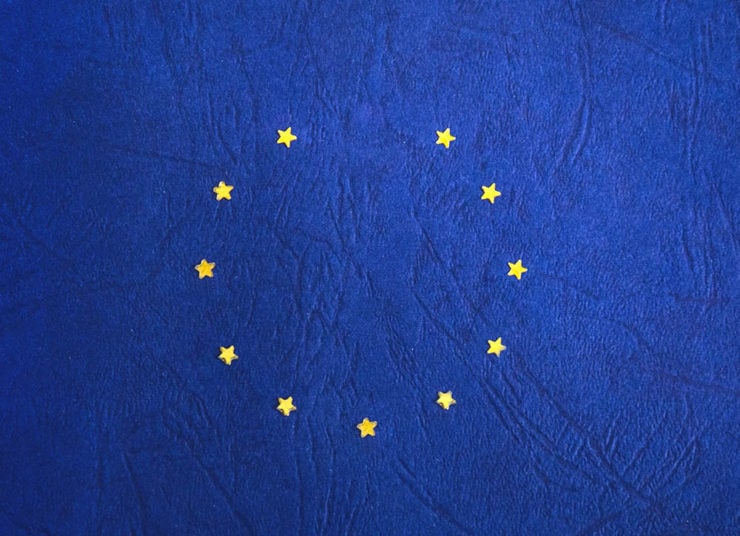
EU Court of Justice: Reform should mandate access to documents

International: Using access to information to combat corruption
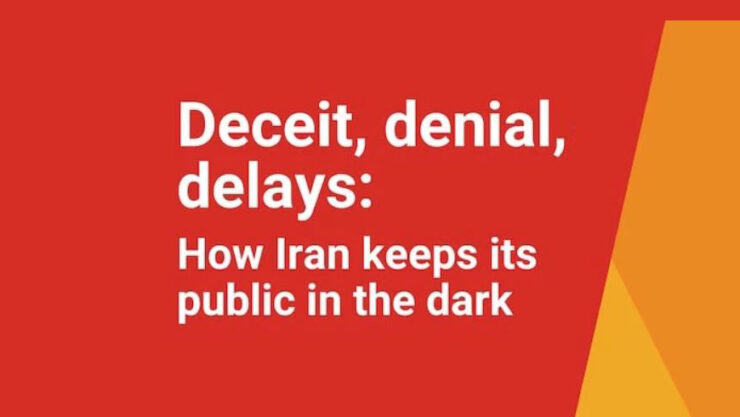
Deceit, denials, delays: How Iran keeps its public in the dark

COP27: Transparency must underpin actions to address climate change
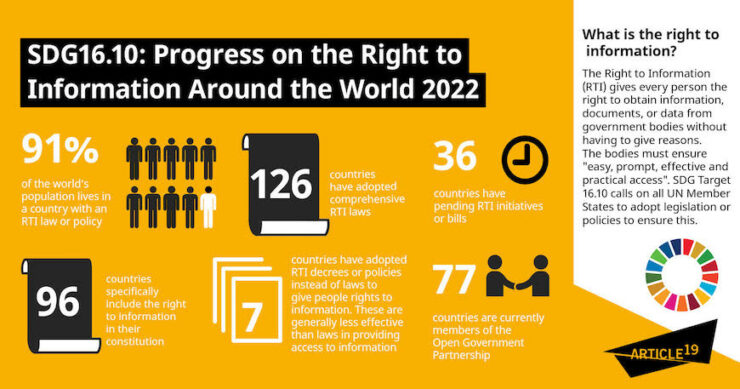
Infographic: Progress on the right to information around the world
All Right to Information

UN: Open letter urging public procurement transparency

SDG Summit: A missed opportunity for freedom of expression and information
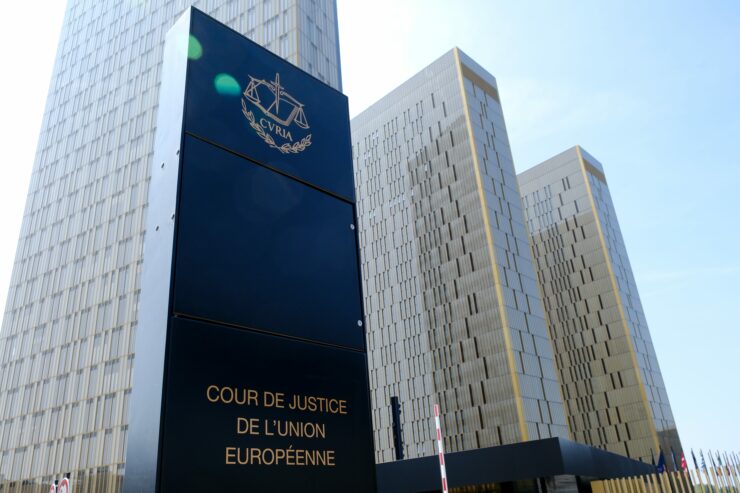
European Union: Court’s reform a chance for open justice
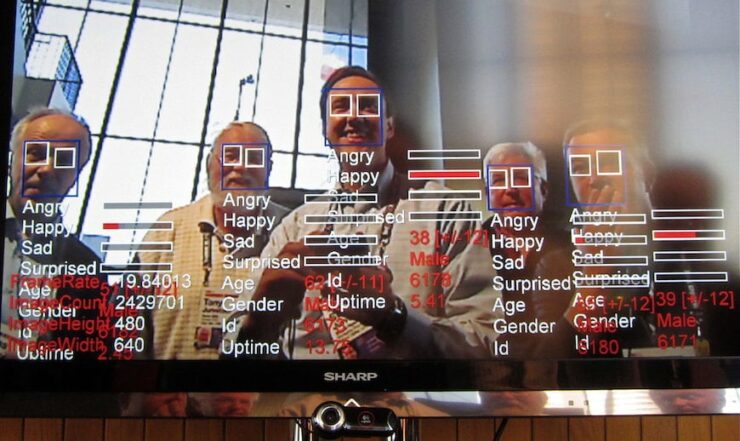
EU: Court denies full transparency about emotion recognition
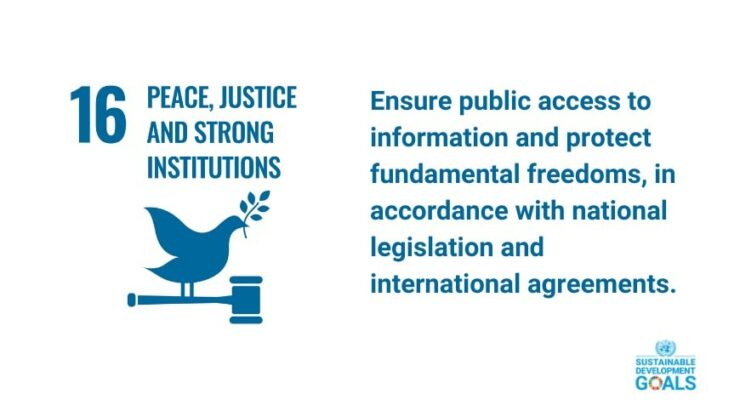
UK: Open letter to Prime Minister on Sustainable Development Goals

Sustainable Development Goals: Freedom of expression off target



